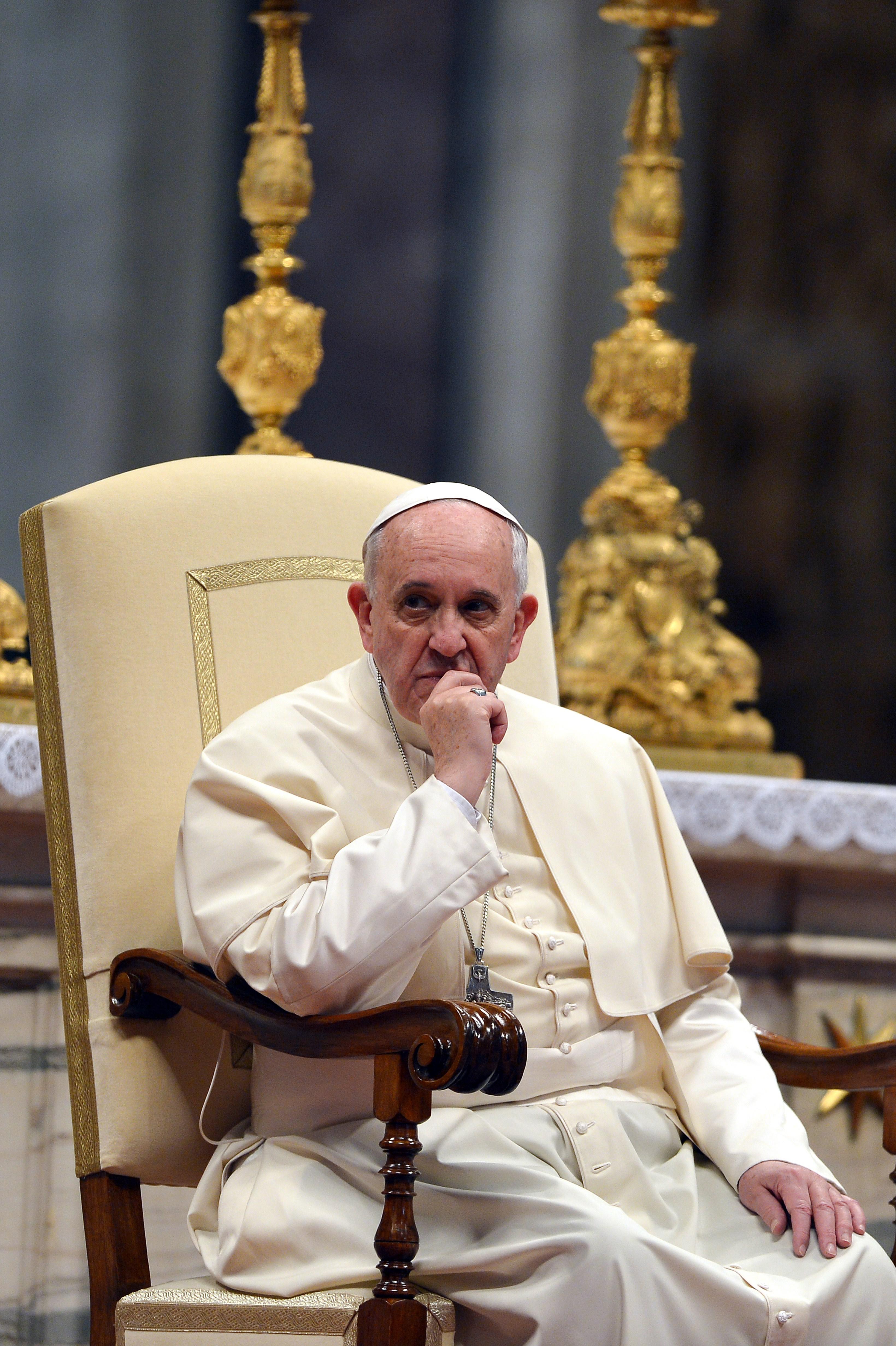It’s not easy being pope. You have 2,000 years of tradition to defend. You have piles of doctrine and an ecclesiastical bureaucracy. Meanwhile, you have liberals clamoring for change. And then there’s your boss.
To navigate these difficulties, Pope Francis recently instructed bishops to survey their flocks about various social issues. The issues included birth control, premarital sex, divorce, and gay marriage. The purpose of the survey was to reconsider not the church’s teachings but how it communicated those teachings to the faithful.
Catholics in Europe and the U.S. knew what the results would be. Findings released last week in Germany and Switzerland showed a wide gap between the church and its followers. An independent survey released this weekend by Univision confirms a similar gap in the U.S. On every issue, American Catholics are more liberal than the church’s teachings.
The Univision poll found that 54 percent of U.S. Catholics supported same-sex marriage. Fifty-nine percent supported admitting women to the priesthood. Sixty percent thought Catholics who had divorced and remarried outside the church should be eligible to receive communion. Sixty-one percent thought priests should be allowed to marry. Seventy-six percent thought abortion should be permitted at least in some circumstances. Seventy-nine percent supported contraception.
So Francis should get with the program, right? He should push the church to change these positions, right? Eh, not so fast. It turns out that if you poll Catholics globally—not just the ones here and in Europe—you get a more complicated picture. In much of the world, Catholics aren’t to the left of Francis. They’re on the right.
The Univision survey sampled more than 12,000 Catholics in 12 countries. Together, the Catholic populations of these countries represent more than 60 percent of Catholics worldwide. The countries were Argentina, Brazil, Colombia, the Democratic Republic of the Congo, France, Italy, Mexico, Poland, the Philippines, Spain, the U.S., and Uganda.
Most Catholics in the U.S., Europe, and Latin America said abortion should be permitted in some cases. But in the Congo, Uganda, and the Philippines, majorities—56, 64, and 73 percent, respectively—said abortion should never be allowed. Catholics in those three countries also opposed communion for divorced people. In the U.S., Western Europe, Argentina and Brazil, support for female priests outweighed opposition. But in Mexico, Poland, the Philippines, and the two African nations, opposition outweighed support.
On gay marriage, respondents backed the church. Support for same-sex marriage outnumbered opposition in only two countries: the U.S. and Spain. Everywhere else, opposition outnumbered support. In Argentina and Brazil, the margin was very tight. In France, it was clearer: 51 to 43 percent. In Italy, it was quite clear: 66 to 30 percent. In Uganda and the Congo, the opposition figure was nearly 100 percent. Two-thirds of the entire 12-nation sample opposed same-sex marriage.
That doesn’t mean the Vatican can rest easy. The pollsters found that overall, young Catholics were more likely than older Catholics to favor gay marriage, by about 18 percentage points. Unless that gap disappears as young Catholics age, the church will face stress over this issue. On contraception, the stress is already severe. Seventy-eight percent of the 12-nation sample endorsed contraception. In all three South American countries, the support level exceeded 90 percent. Only one country, Uganda, showed a majority in sync with the church’s position.
In theory, being pope, rather than president, means you don’t have to consult polls. In practice, however, a church hierarchy that’s out of touch with its grass roots is in trouble. If your followers don’t agree with you, they aren’t really followers. On issues of family morality, the Vatican has a problem. But the problem isn’t just that Catholics don’t agree with the pope. The problem is that Catholics don’t agree with Catholics.
